Where sex matters | Prisons
Prisons
Keeping male and female prisoners in separate accommodation is one of the minimum expectations for the treatment of prisoners.

In the UK, Prison Rules state that male and female prisoners should be kept separate from each other. International standards also support this:
Men and women shall so far as possible be detained in separate institutions; in an institution which receives both men and women, the whole of the premises allocated to women shall be entirely separate
United Nations Standard Minimum Rules for the Treatment of Prisoners
There are around 3,800 women in prison in England and Wales (under 5% of the prison population). Women tend to have committed significantly fewer serious violent offences or sexual offences than men. Over 30% of female prisoners report a history of sexual abuse, compared with 10% of male prisoners. Almost 60% of women reported experiencing domestic violence.
What’s the problem?
Convicted male prisoners are held in women’s prisons throughout the UK, based on gender identity. The policy on Care and Management of Individuals who are Transgender applies to prisons throughout England and Wales. It states that:
All individuals who are transgender must be initially allocated to part of the [prison] estate which matches their legally recognised gender.
England and Wales policy
Males who identify as transgender women but who do not have a GRC should initially be placed in a men’s prison, but can apply to be transferred to a women’s prison based on evidence of “living as a woman”.
Freedom of Information requests by Fair Play For Women in December 2020 revealed that there were 163 recorded transgender prisoners in England and Wales. Almost 50% had at least one conviction for a sexual offence. There is emerging evidence that the Prisons Service is failing to keep track of any of the data relating to transgender prisoners and in which estate they are accommodated.
The rules for the Scottish Prison Service Gender Identity and Gender Reassignment Policy for those in our Custody go even further than the England and Wales policy. It makes no distinction between males with a GRC and those without one. It states:
A male-to-female person in custody living permanently as a woman without genital surgery should be allocated to a female establishment. She should not be automatically regarded as posing a high sexual offence risk to other people in custody and should not be subject to any automatic restrictions of her association with other people in custody.
Scottish Prison Service policy
If a male prisoner transitions to “living as a woman” during his sentence he will be moved to a women’s prison. The Scottish policy is embossed with Stonewall and Scottish Trans Alliance logos, giving the impression that this has been developed in consultation with and endorsed by both organisations.
Holding males in women’s prisons introduces multiple risks to women, including fear, trauma and lack of privacy. There have been instances of sexual violence against women in what should be safe private spaces. Rhona Hotchkiss, a retired prison governor previously in charge of women’s prisons in Scotland, reports that there have been numerous incidents of inappropriate sexualised and aggressive behaviour and threats towards women by trans-identifying men. These incidents often caused real distress to women whose mental health is already vulnerable.
Updates
-
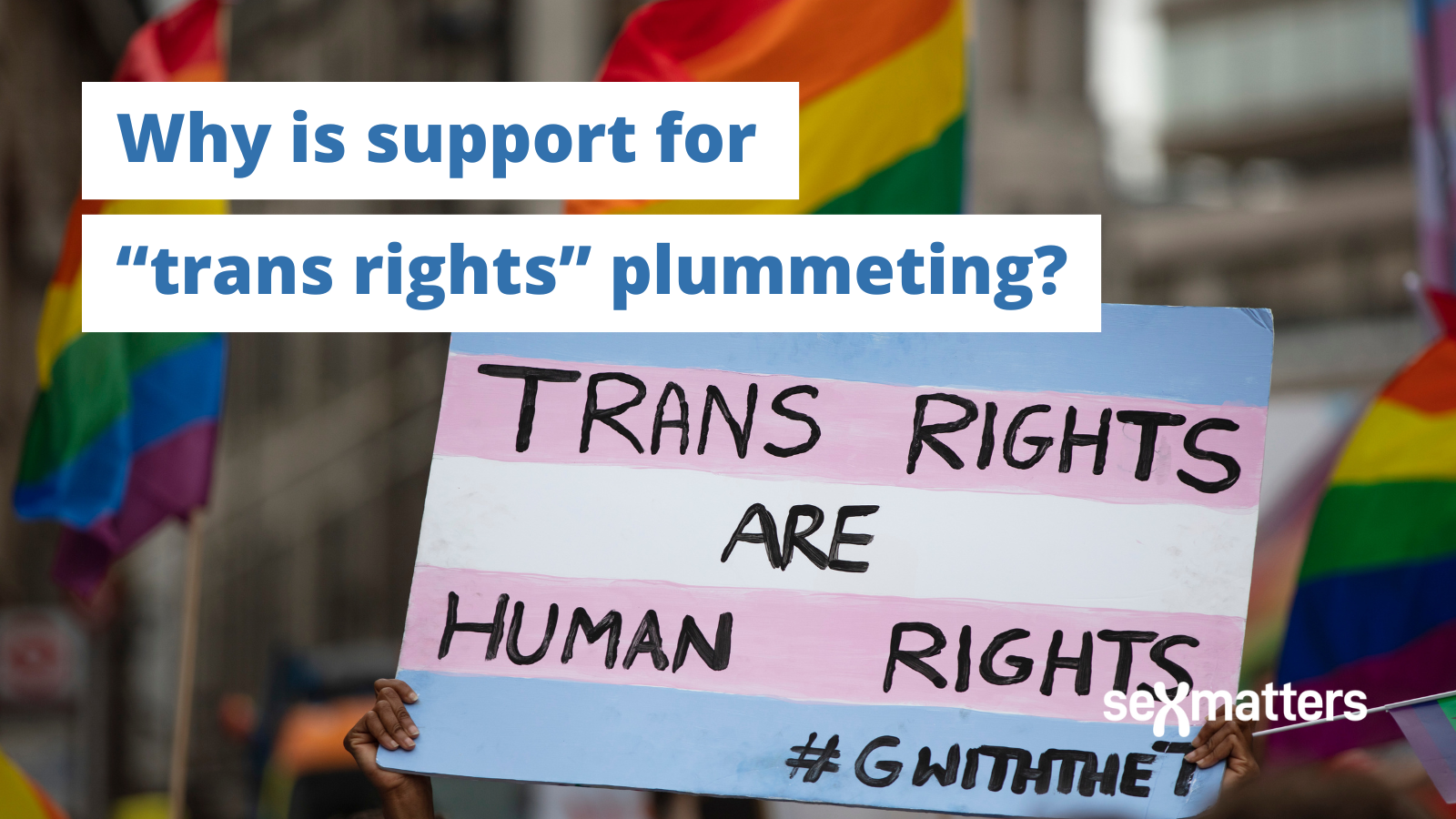
Why do people think “transgender rights” have gone too far?
It’s not just about self-ID Support for the law that allows people to change the sex recorded on their birth certificate has fallen a long way over the past few years, most sharply when self-ID was being proposed, in 2018–19 in the UK and then again in 2021–22 in...
14th June 2024
-
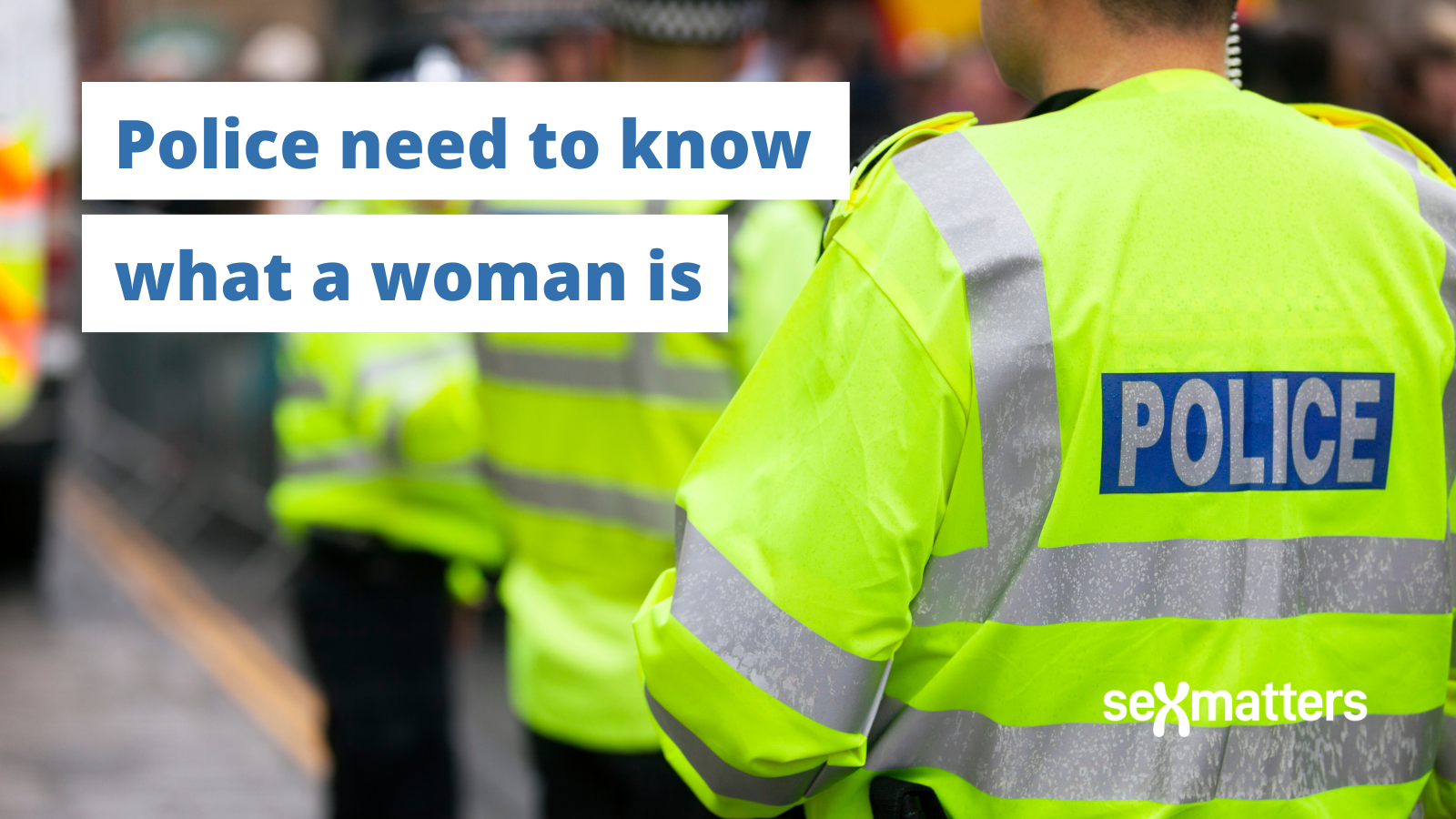
Sex and the police: confusion over the law and state-sanctioned sexual assault
Update on the review into activism and impartiality in policing HM Chief Inspector of Constabulary Fire & Rescue Services (HMICFRS) has today published a letter with interim findings from his review of the politicisation of the police, which was started in September 2023 at the request of the Home...
10th January 2024
-
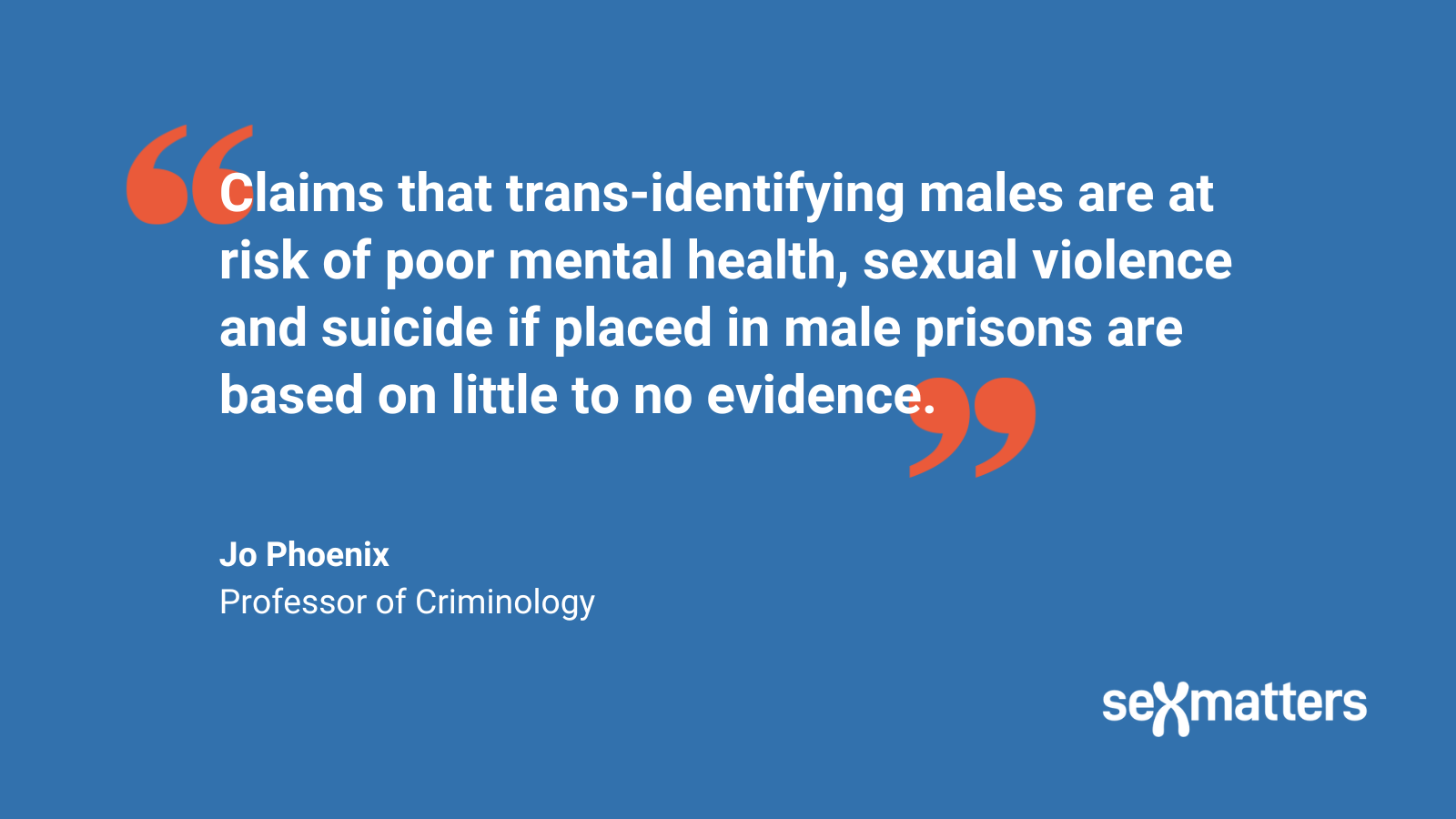
A policy in search of evidence
Why we need to treat with caution claims about the specific harms of keeping trans-identifying men in male prisons
21st March 2023
-
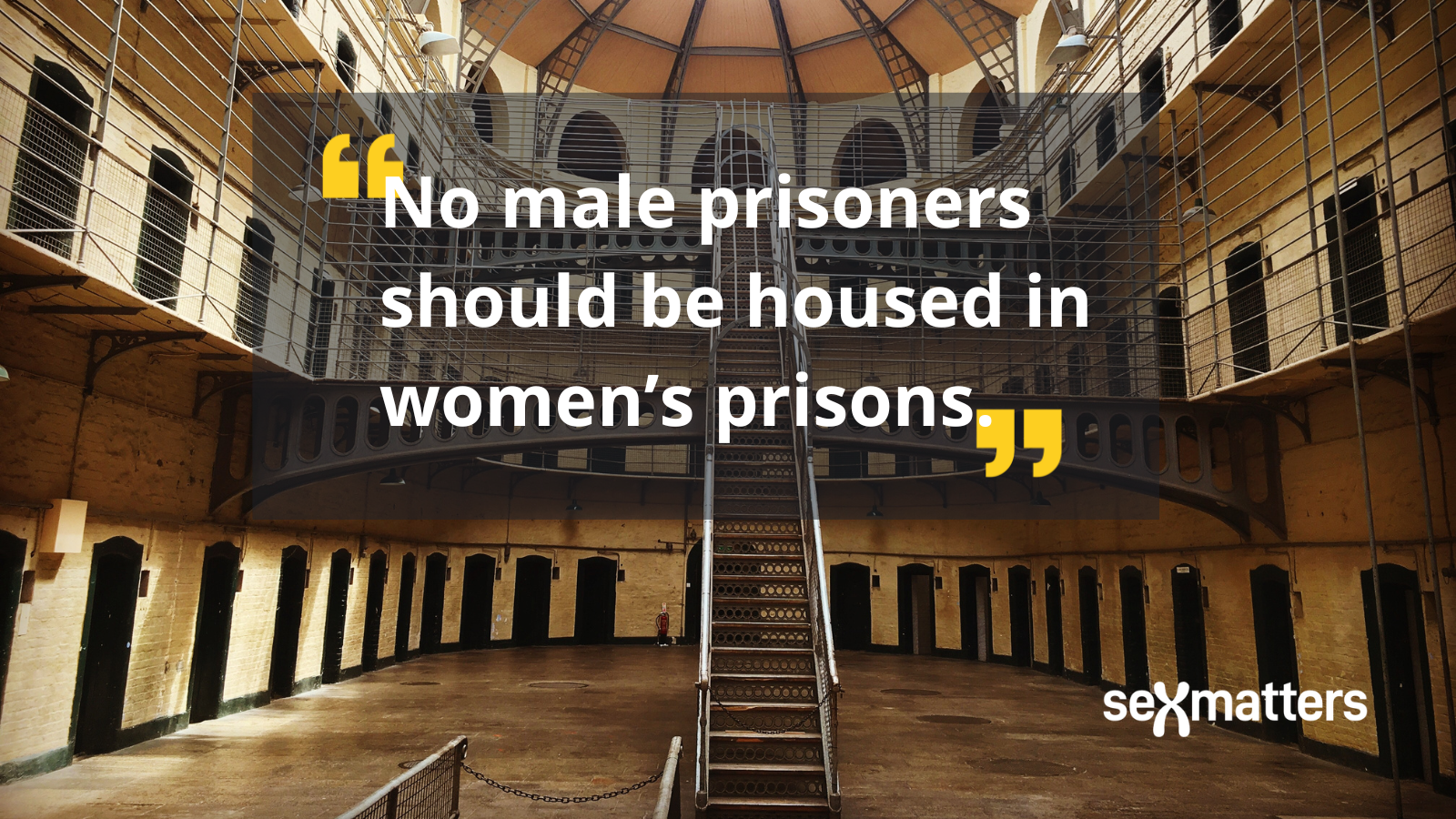
New MoJ transgender prisoner policy: Sex Matters’ response
Sex Matters welcomes the Ministry of Justice’s announcement that men who identify as women will no longer be housed in women’s prisons if they have male genitalia or have committed sexual or violent crimes, with exceptions only to be made with ministerial authority. We join Woman’s Place UK and...
6th March 2023
-
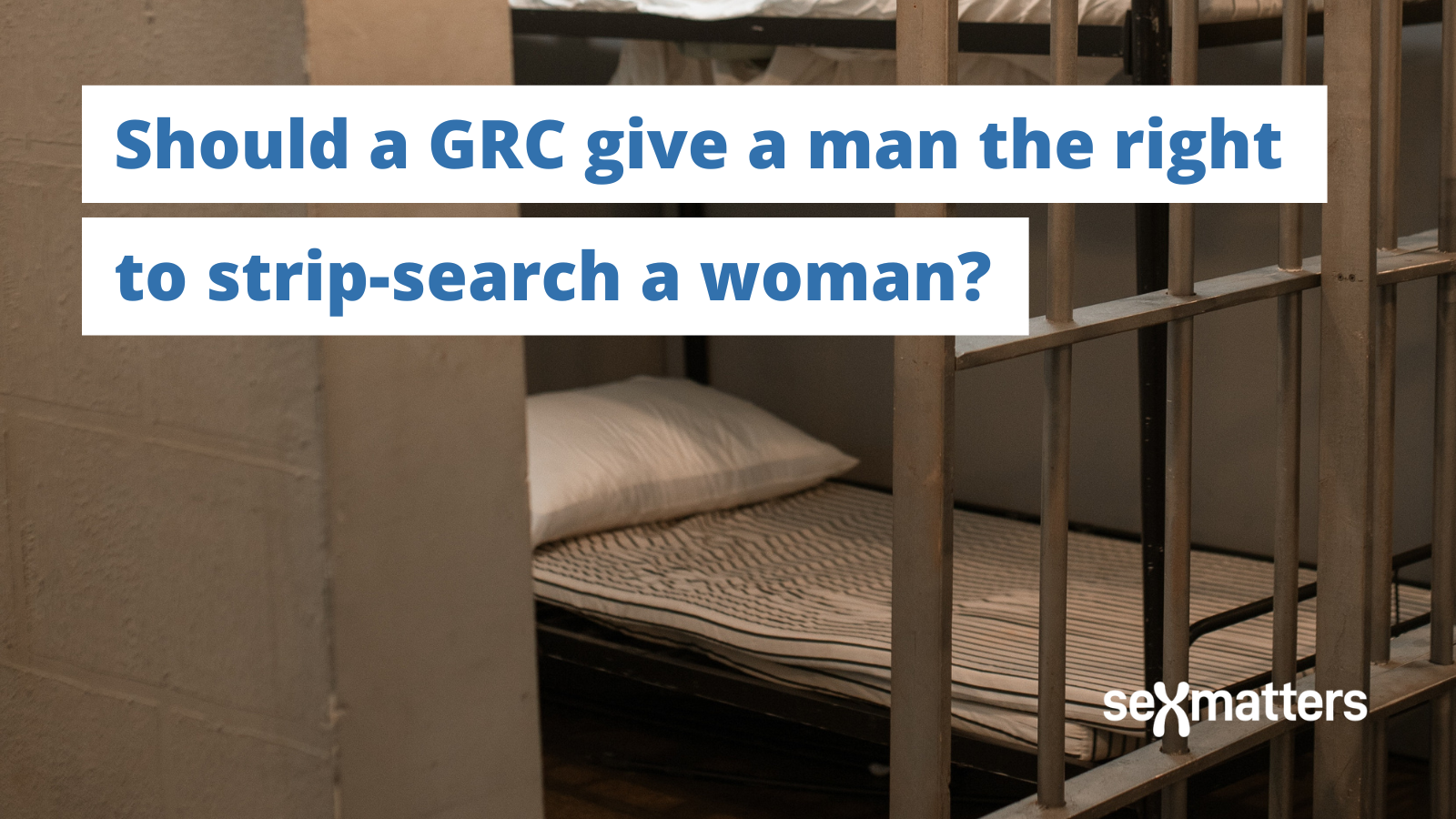
Searching for a simple answer
What does a gender-recognition certificate actually do? The question comes into sharp focus when people are forced to undress, or have to submit to intimate touching. It is a question of central importance to HM Prison and Probation Service’s policy on searching. Human rights As the Divisional Court in...
22nd February 2023
-
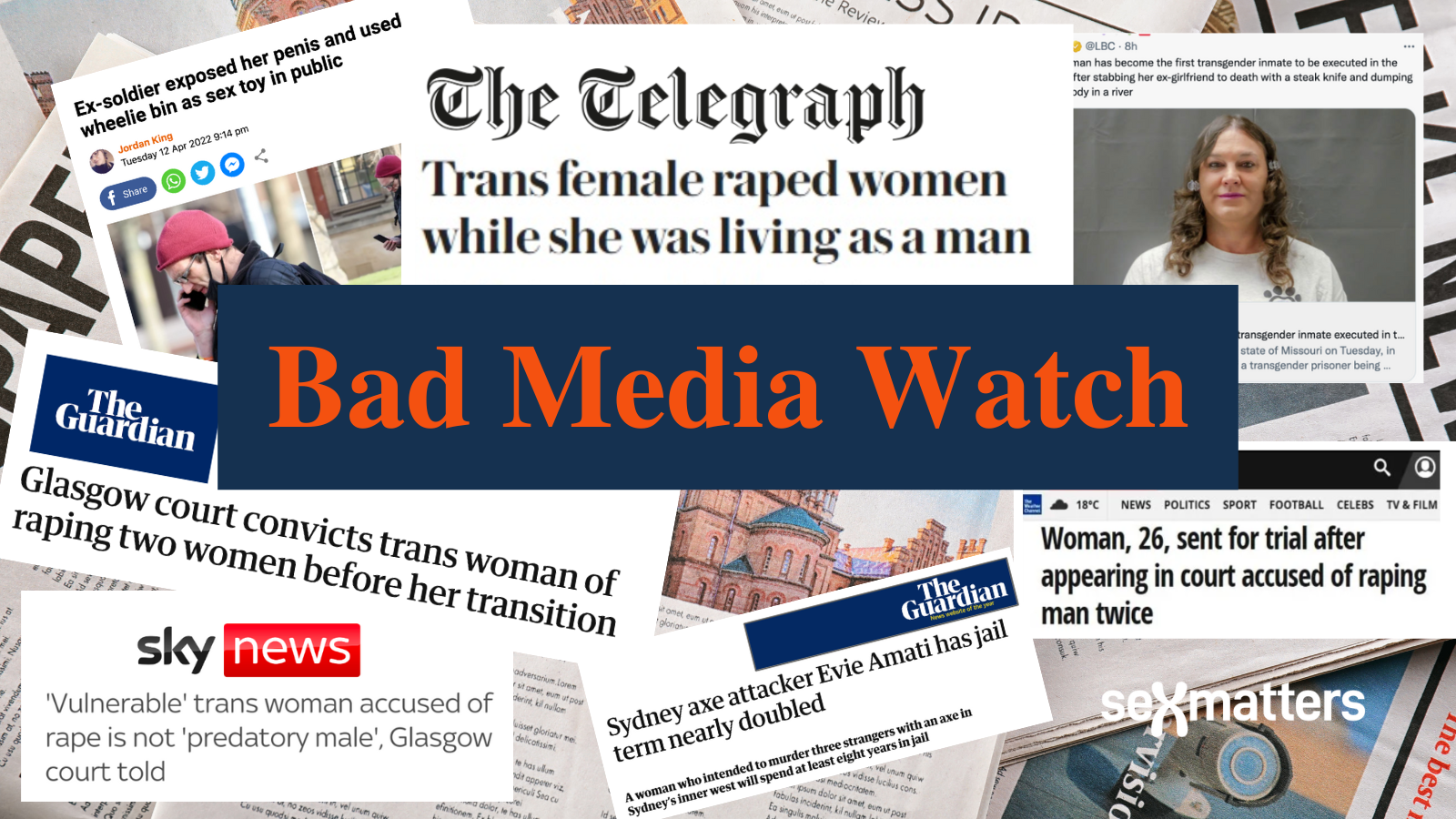
Call out bad reporting with our new tool
Media coverage of sex and gender is often confused, biased, misleading or simply wrong. This has become clearer than ever in recent weeks as the spotlight has fallen on Adam Graham, a man who decided he was a woman after appearing in court on rape charges. As in previous...
7th February 2023
-
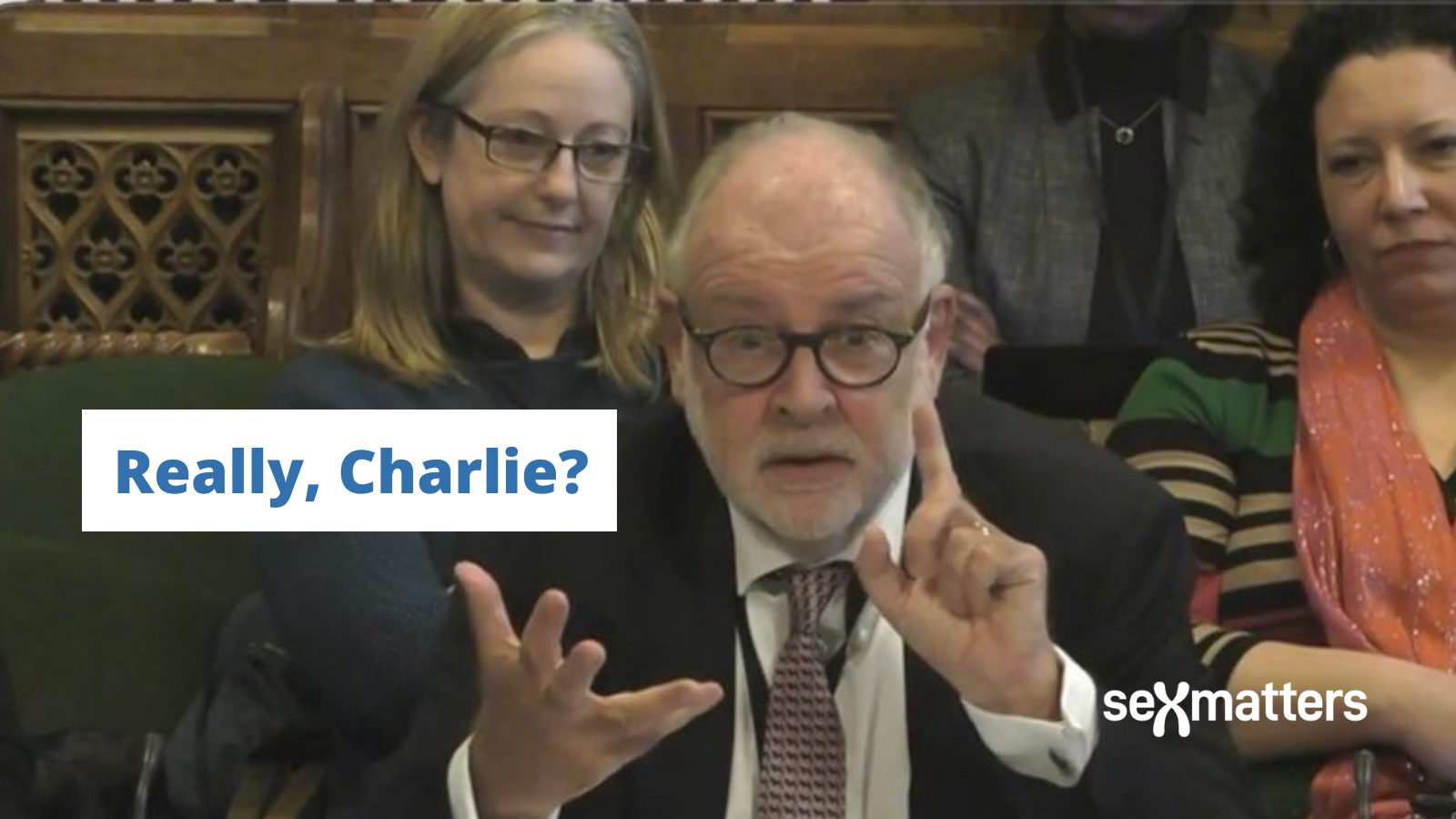
Charlie Falconer’s testimony
The Women and Equalities Committee held an evidence session on 31st January on the Gender Recognition Reform Bill and the Equality Act. It featured Robin White, Barrister at Old Square Chambers; Naomi Cunningham, Barrister at Outer Temple Chambers (and Sex Matters’ Chair); Dr Michael Foran Senior Fellow, Policy Exchange...
2nd February 2023
-

Clarify the Equality Act: sign the petition
The Equality Act 2010 protects everyone’s rights and covers everything from schools to hospitals, pubs to sports, and everybody’s workplace. It includes protection against sex-discrimination, and allows single-sex services. But on 13th December a judge in Scotland pronounced that Equality Act does not recognise biological sex as a protected...
16th December 2022
-
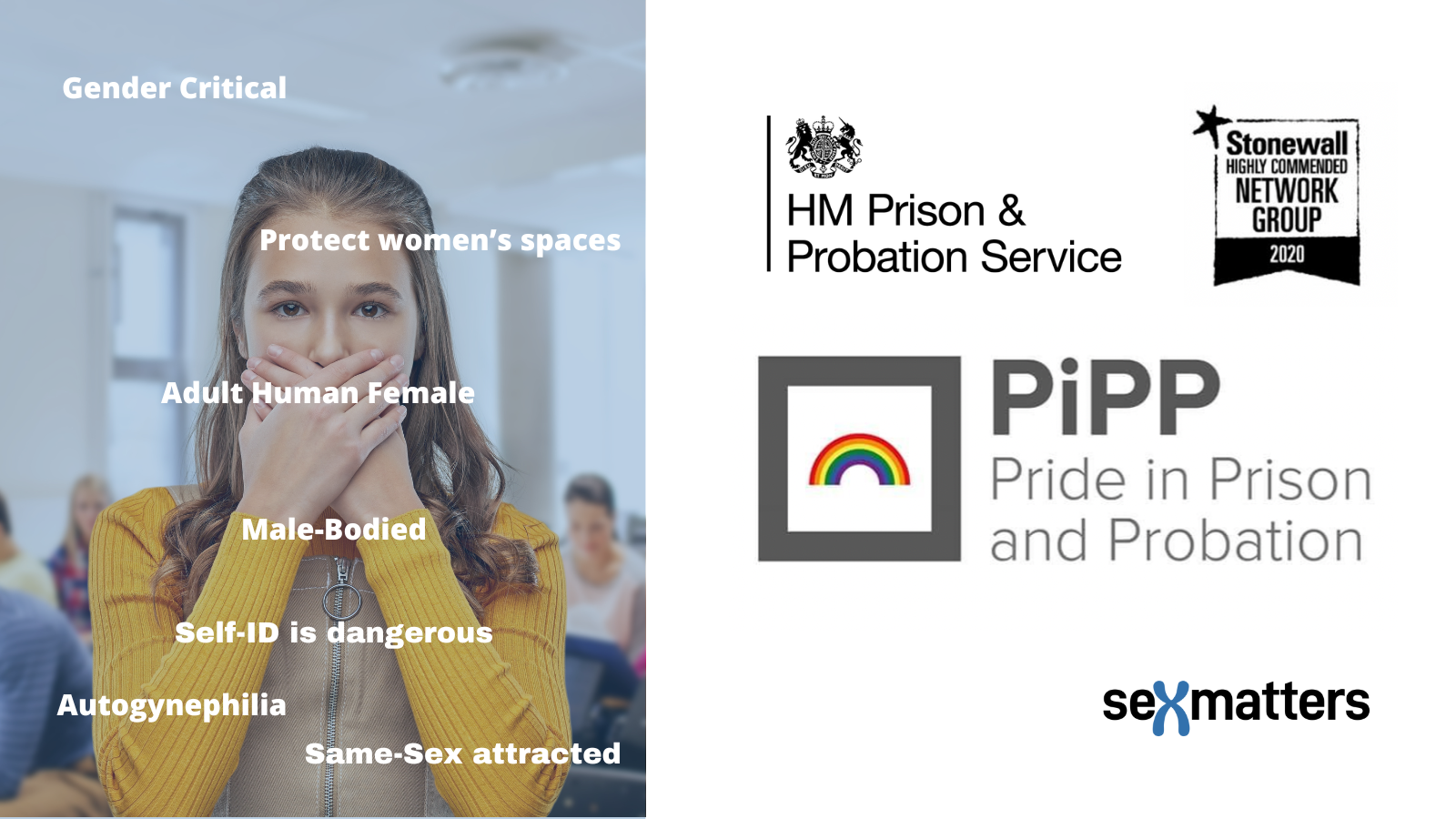
Mass harassment in HM Prisons and Probation Service
As reported in The Telegraph today, HM Prisons and Probation Service’s Pride in Prison and Probation (PiPP) staff network has circulated documents for Trans Awareness Week telling MoJ staff to recognise a series of words and phrases as “transphobic dogwhistles”. The PiPP is an official staff network, with a...
20th November 2022
-

Self-ID: tell the Scottish Parliament your views!
When the Gender Recognition Act came into force in 2004, it was a single regime for the UK. The Scottish Executive at the time considered whether Scotland should have separate legislation, but rejected this approach due to “cross-border anomalies”. In 2019 the UK government stepped back from its plan...
3rd May 2022
-
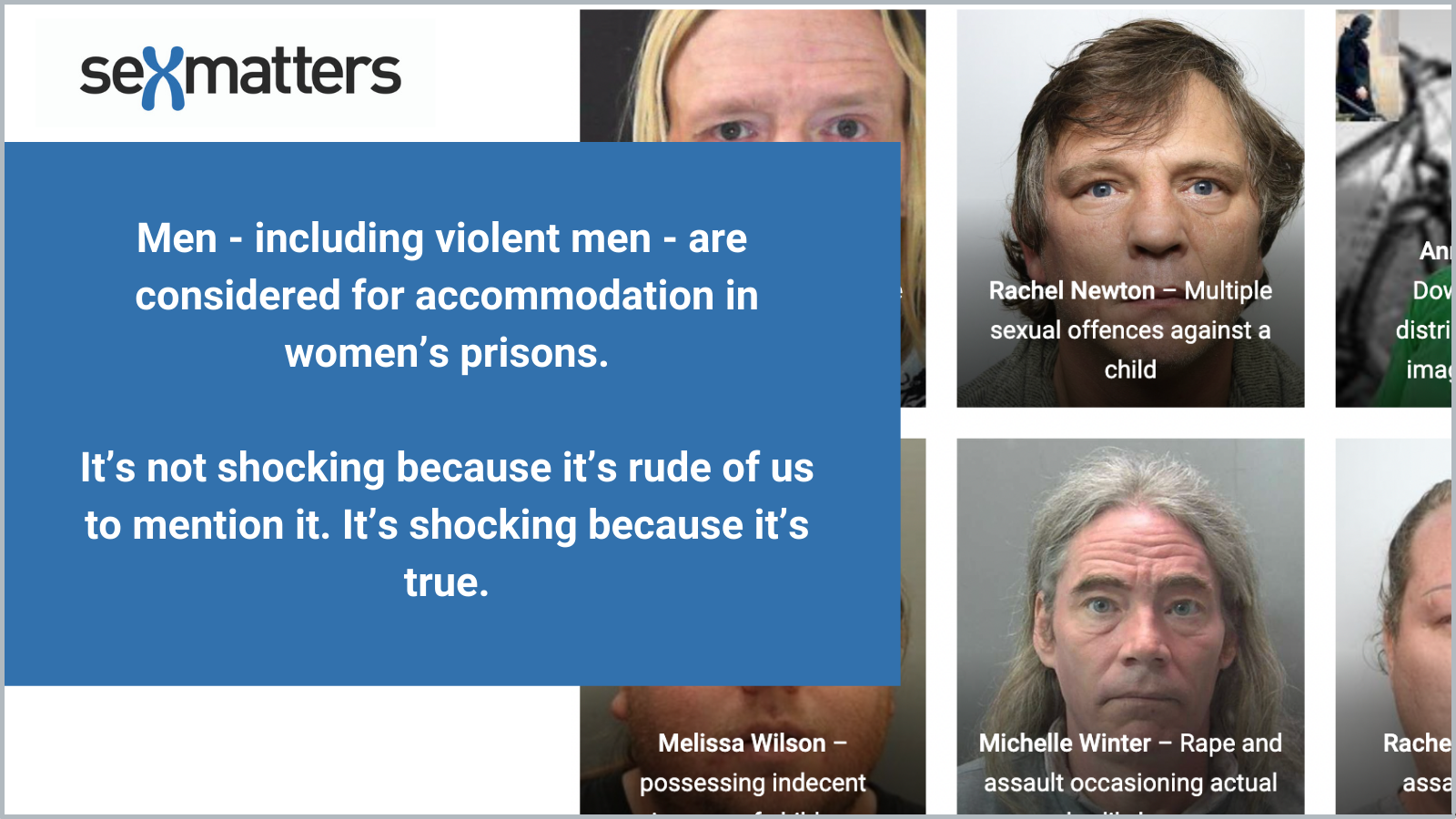
Were we unkind?
We have had this email about yesterday’s post on the prisons judicial review to which we think we should respond: The first thing we want to say to the writer is “thank you”. We mean that. If one of our own supporters writes this to us, then it’s a...
4th July 2021
-

The law must protect women in prison
Today the High Court handed down a shocking and disappointing judgment, that the Ministry of Justice has not broken any law in its policy of housing fully intact men who identify as women in women’s prisons, despite the judges recognising: “a statistically greater risk of sexual assault upon non-transgender...
2nd July 2021
-
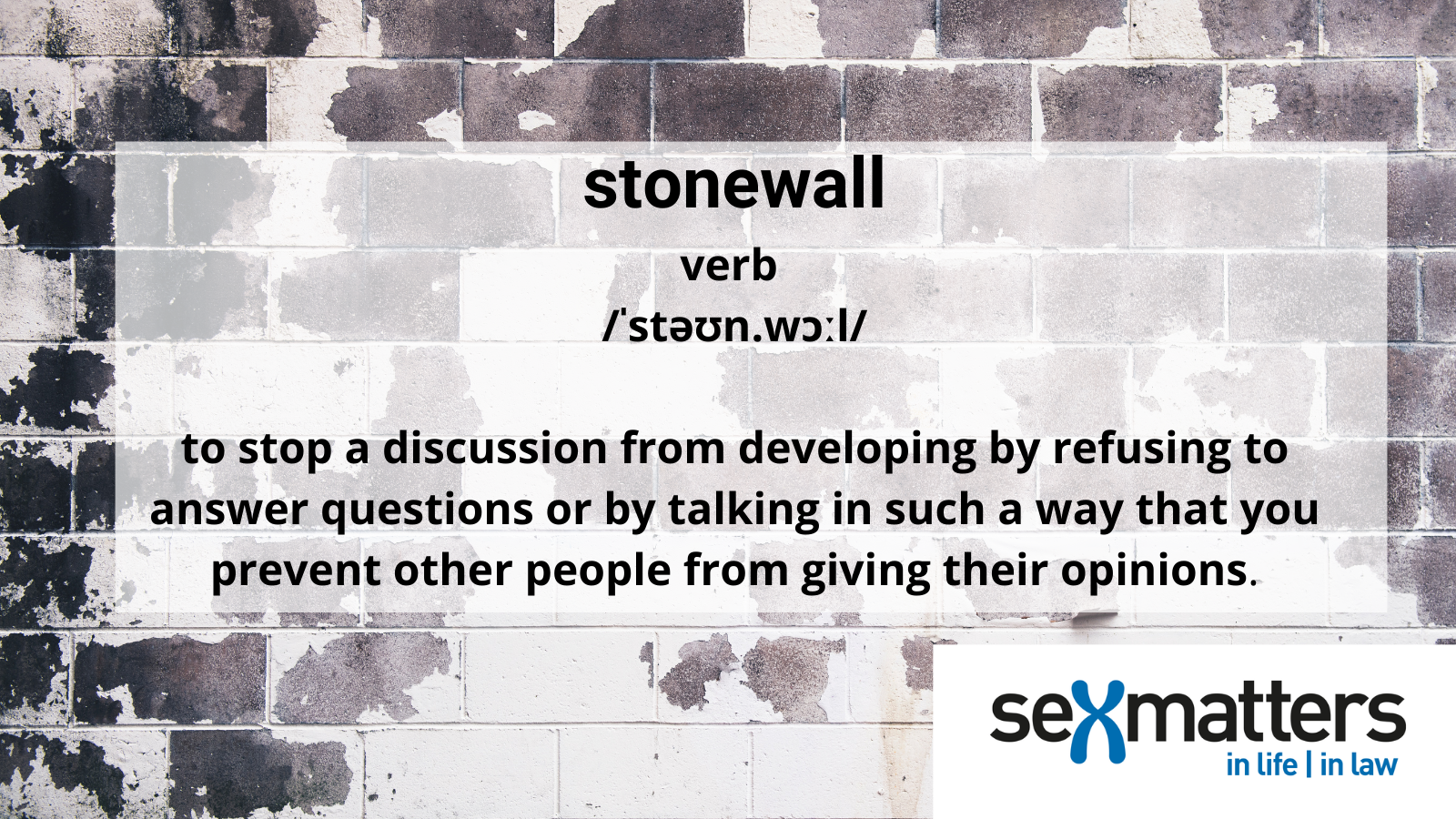
Truth and reconciliation
How should the public sector leave the Stonewall Champions Scheme?
6th June 2021
-

Time to #LeaveStonewall
This is the letter we have sent to the CEOs of the 850 organisations that are members of the Stonewall Diversity Champions Scheme. Re: Leaving the Stonewall Diversity Champions Scheme We are writing to call on you to withdraw from the scheme, both for the sake of your own...
29th May 2021
-

Is Gender Recognition an “access all areas” pass?
The Gender Recognition Act 2004 was passed with little public scrutiny or consideration for women’s rights. A critical question concerns the provision in Section 9 that a gender recognition certificate changes a person’s sex for all purposes. Is this an “access all areas“ pass? When the Act was passing...
14th April 2021
Other resources
-

Accommodation of transgender prisoners and Article 3 ECHR
Claire Methven O’Brien writes for Scottish Legal News on how attention has recently focused on policy and practice concerning accommodation of transgender prisoners in Scotland. However, the role of Article 3 of the European Convention on Human Rights (ECHR) has been little discussed in this context. Accordingly, this...
-
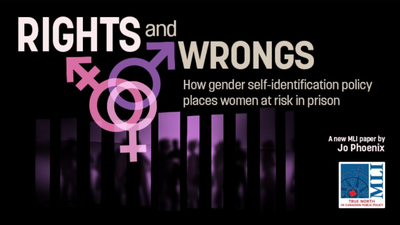
Rights and wrongs: how gender self-identification policy places women at risk in prison
Jo Phoenix, Professor of Criminology at the University of Reading, describes how the decision to include anatomical males who identify as women in a population of female prisoners creates a new layer of vulnerability for an already vulnerable group.
-

Fair Play For Women
Campaigning and consultancy group which raises awareness, provides evidence and analysis, and supports policy-makers to protect the rights of women and girls in the UK. Opposes sex self-ID, and also played a large part in the government’s decision to abandon plans to introduce it in England and Wales in...
-

Trans law is a ‘magic key’ for predators
Mark McLaughlin for The Times
Sex Matters Chair Naomi Cunningham is the legal expert quoted.
A legal expert has warned Scotland’s controversial gender laws will provide men “who cross-dress for erotic purposes” with a “magic certificate” to access women’s spaces. -

Female inmates do not trust Nicola Sturgeon to decide who is sent to female prisons
Ex-Cornton Vale Prison inmate Amanda Benson talks to Times Radio.
“Putting a double rapist into a female prison, I don't know what risk assessments they're doing to have these men in the prison.” -

Minister defiant over trans rapist Isla Bryson
Mark McLaughlin for The Times
Maya Forstater is extensively quoted. The article was later revised.
The Scottish justice secretary has refused to stop the imprisonment of rapists in women’s prisons after a party colleague accused a double sex offender of “gaming the system”. -

Woman’s Place UK (WPUK)
Grassroots feminist campaign formed in 2017 by women with backgrounds in trade-union and broader social movements. Aim was to ensure women’s voices would be heard in the consultation on proposals for self-identification and to uphold single-sex exceptions. Played a large role in getting government plans to reform the Gender...
-

Women’s Rights Network
Combined grassroots groups of women who oppose sex self-ID. Supports local, in-person networking. Has topic-related groups (such as sports, prisons, schools) that create resources, including videos and podcasts and social-media posts, and coordinate national campaigns. Was a core member of the “Respect My Sex” campaign before the local elections...
-

DBS checks and identity verification: safeguarding loopholes created by changes of identity
An analysis by Keep Prisons Single Sex of the exceptional privacy rights given to those who change their gender as well as their identity.
-

Keep Prisons Single Sex
Keep Prisons Single Sex was set up in July 2020 by Dr Kate Coleman to campaign for the sex-based rights of women in prison to single-sex accommodation and same-sex searching. The campaign ran until July 2024. The resources on the website are still available to use.
-

How police forces in England and Wales record suspects’ sex in crime and incident reporting
Keep Prisons Single Sex reports that from its research it is clear that many police forces record suspects’ gender identity in lieu of sex registered at birth, frequently on the basis of self-identification.
-

“We hardly get any of those here” – working with girls and women
Charlotte Weinberg writes for Probation Quarterly on whether changes to the perception, treatment and approaches to work with women and girls affected by the criminal justice system have occurred, to what extent and to what effect.
-

We can resolve the debate on trans prisoners with compassion and common sense
Former prison governor Ian Acheson writes for CapX that there is a blindingly simple way to both eliminate risk and protect transgender prisoners themselves.
-

Excluding female offenders in policy and practice: how the Scottish prison service overlooks the sex-based needs of women in prison
Women’s prisons in Scotland are now effectively mixed-sex facilities. Keep Prisons Single Sex look at the implications.
-

A woman’s place is not in prison
A transcript of Jo Phoenix’s presentation at a panel discussion organised by Woman’s Place UK and the Centre for Crime and Justice Studies.
-

Women’s prisons and male transgender prisoners
The ruling handed down in FDJ v SSJ in the High Court of Justice last week is further proof that UK law does not work for women. In dismissing the claim by FDJ, a woman prisoner who had suffered a sexual assault by a male prisoner while in a...
-

Centre for Crime and Justice Studies
The CCJS conducts research and analysis on crime, the process of criminalisation and the criminal justice system, and works to develop holistic, practical and sustainable solutions to the problem of crime in the UK and beyond. It has been working to encourage calm, respectful dialogue and discussion on the...
-
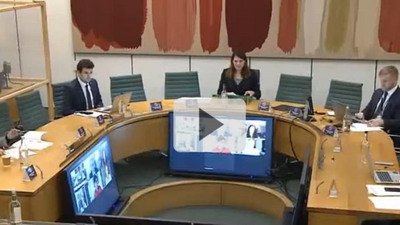
Evidence and data on transwomens’ offending rates
Submitted to the Women and Equalities Select Committee by Professor Rosa Freedman, Professor Kathleen Stock, and Professor Alice Sullivan, this covers the Swedish study referred to; attempts to rebut it; Ministry of Justice data on transgender prisoners in England and Wales; and analysis of that data.
-

The transition from sex to gender in English prisons: human rights and queer theory
By Michael Biggs. This paper analyses how the prison system in England and Wales transitioned from sex to gender, from the 1990s to the 2010s. It traces the succession of criteria for allocating males to women’s prisons: first genital surgery, then legal sex, and finally gender identity, and explains...
Publications
-
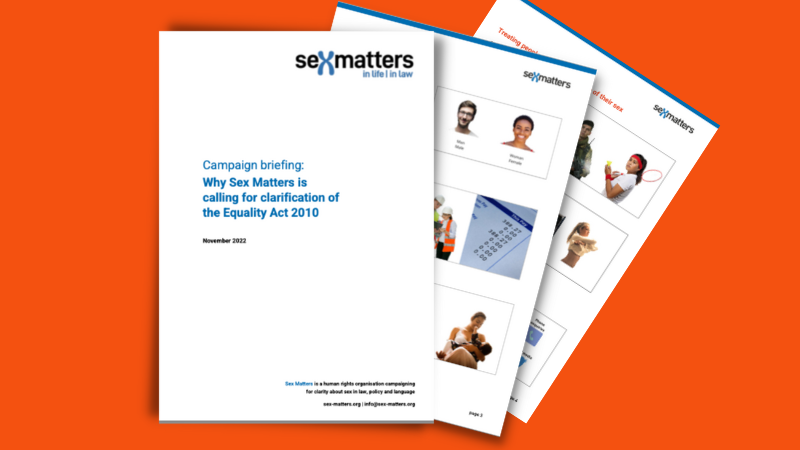
Why Sex Matters is calling for clarification of the Equality Act 2010 – a briefing
Sex Matters has launched a petition calling on the government to clarify that in the Equality Act 2010, “sex” means biological sex, and is not modified by the Gender Recognition Act 2004. This would protect the rights of people of both sexes, as well as people who identify as...
-
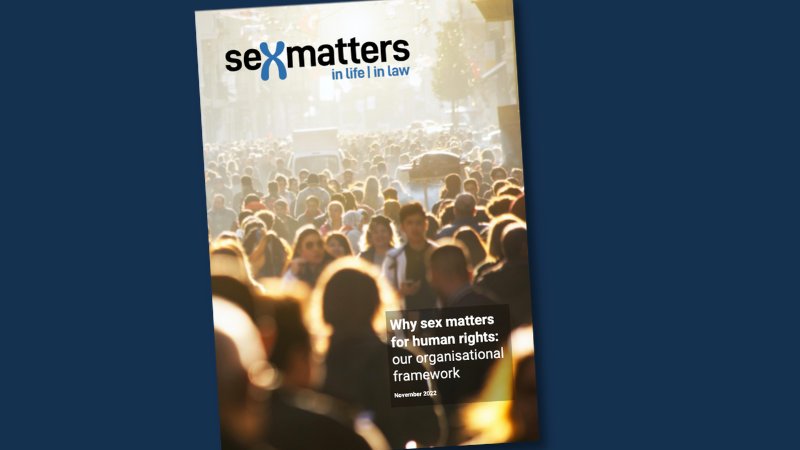
Why sex matters for human rights – our organisational framework
Sex Matters’ mission is to promote clarity on sex in law and policy in order to protect everybody’s human rights. This document sets out the key human rights that are relevant, and why and how our work is guided by the promotion of human rights. (Also see our short guide...
-
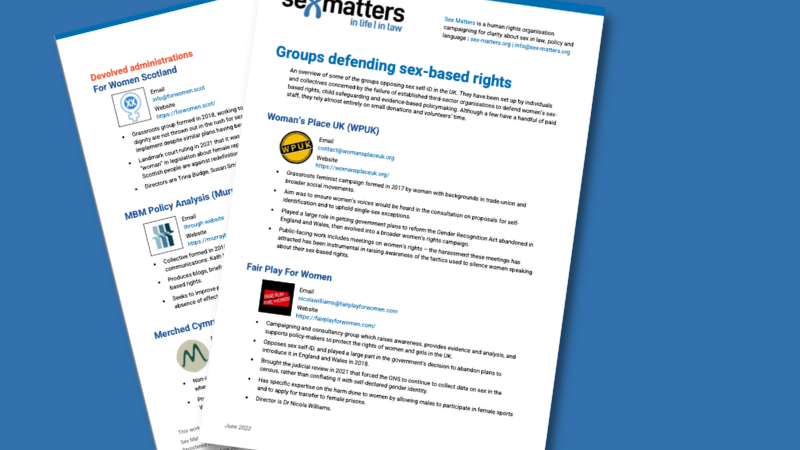
Groups defending sex-based rights
Overview of groups opposing sex self-ID in the UK, set up by individuals and collectives concerned by the failure of established third-sector organisations to defend women’s sex-based rights, child safeguarding and evidence-based policymaking. Also listed on our website.
-
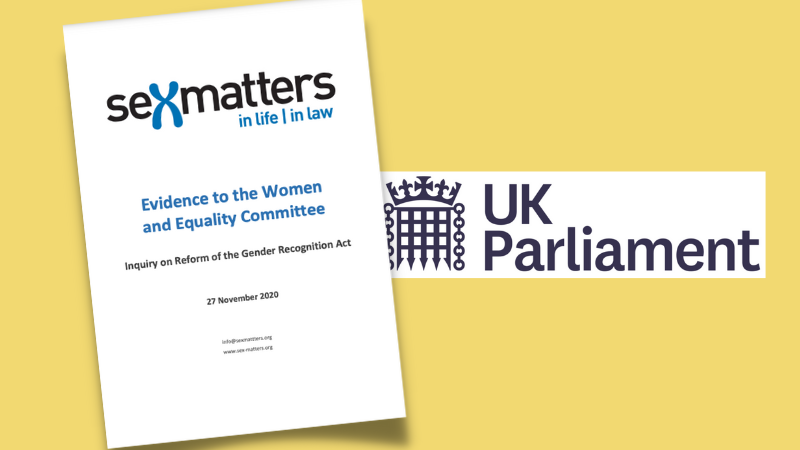
Gender Recognition Act reform – evidence submission
We answer the Women and Equalities Select Committee‘s questions and make six recommendations.
